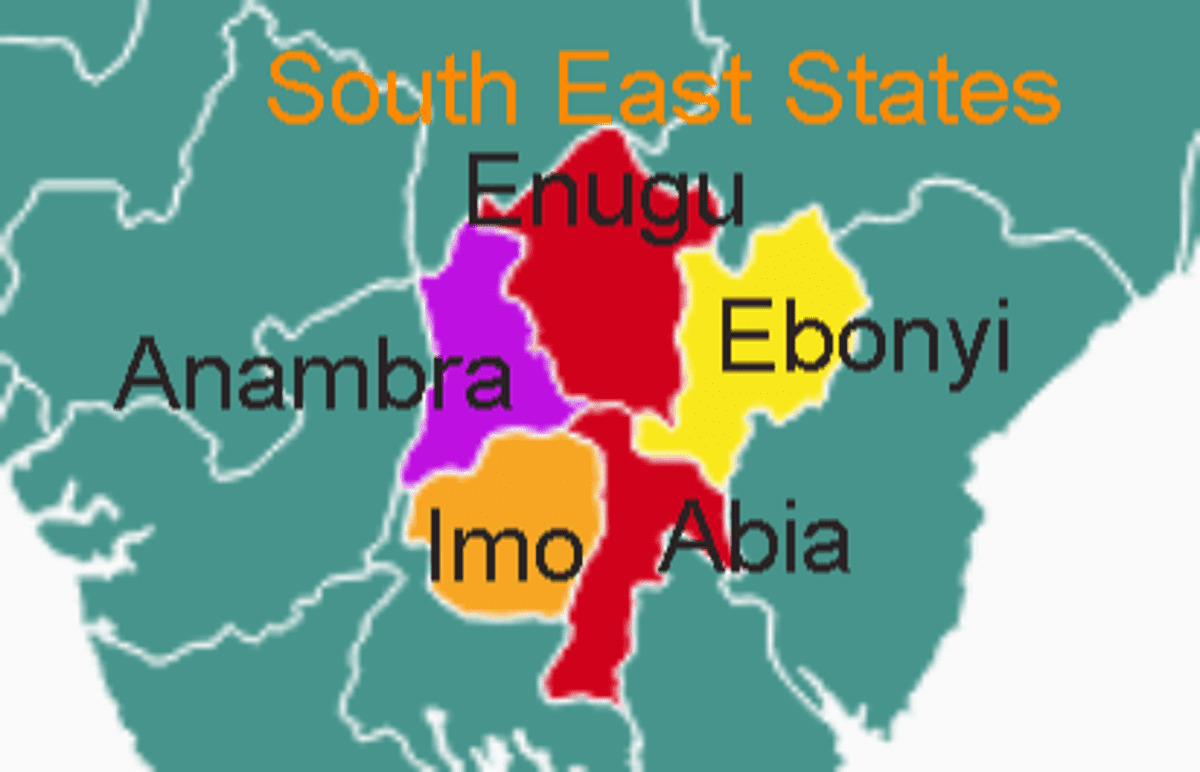Opinion
South East: The Great Expectation After May 29
By Anayo Agu

Life is a continuum, always evolving with great expectations from the choices we make and the chances we take in response to events in our environments. The South East Geopolitical Zone appears to be strategically positioning for a political and economic rebirth.
Speculations about this paradigm shift are coming on the heels of the shocking destruction of businesses, properties, and the reported killings of some innocent citizens particularly in Lagos State, including those suspected to be of Igbo extraction because of their presumed political leanings.
The great expectation is that by the end of the next electoral cycle starting on May 29, 2023, a new South East would have been born, and it would have taken flight towards the sky leaving behind the cocoon of a divided geopolitical zone.
Those betting on this geopolitical transformation have their optimism anchored on a trio of two Governors-elect; Dr. Peter Ndubuisi Mbah of Enugu State, his Abia State counterpart Dr. Alex Oti, and the Governor of Anambra State, His Excellency, Professor Charles Chukwuma Soludo. Their track records, their compelling visions and their collective enthusiasm about the future of their states as well as the necessity for a holistic integration of the economies of the South East Zone, invoke admirations of messianic proportions.
Steve Jobs once commented that “The people who are crazy enough to think they can change the world are the ones who do.” As in all endeavor show ever, result is the ultimate measure of our stock of virtues including the contents of our character, competence, capacity and commitment. While the primary domains and aspirations of this trio may differ, their commercial environmental challenges are substantially the same. The challenges include; pervasive regional insecurity, weak infrastructural ecosystem (particularly road networks), electricity, potable water supply, environmental degradation, and worsening systemic corruption which together conspire to erode whatever remains of the ease of doing business. These challenges scare potential investors including the Nigerian (in) Diaspora.
It is envisaged that if these three leaders could harmoniously collaborate, and hopefully enlist their counterparts in Ebonyi and Imo States to join them in championing a win-win, integrated approach to all zonal issues, especially economic development in partnership with the private sector, they could break the jinx of divisiveness and unhealthy rivalries which have regrettably choked the potential of Igbo land.
The Dilemma of Igbo People in Nigeria:
The Igbo man has become an endangered species in Nigeria. Yet he is everywhere building the nation like no other citizen. Wherever he resides outside Igbo land, he is unjustly suspected by neighbours and relentlessly hounded by landlords who accuse him of inordinate ambition, boisterous display of wealth, and dominance in every marketplace. On national politics and governance, he is blackmailed, marginalised and effectively excluded from holding certain, strategic portfolios for the fear that he may be harbouring a hidden agenda. In other words, he faces different shades of the same evil everywhere he goes in his beloved country in search of a breathing space to eke out a living.
The Trending ‘Tik Toks’:
Following the tragic attacks on Igbo people by hoodlums in Lagos State during the federal and state elections in February and March this year, all kinds of ugly and very demeaning “tiktoks” have flooded the social media, mocking “Ndigbo” who are reclaiming swamps, filling canals and dredging rivers to build family homes and commercial real estates in Lagos State. To wealthy Igbo entrepreneurs, successful business owners and distinguished professionals, the videos and the caricatures that spice their messages may be summed up as saying this much: There are inherent risks involved in your unrestrained penchant to retain almost all of your physical assets, businesses, and every means of your survival wherever you reside outside your homesteads, the South East Geopolitical Zone.
In a recent paper titled “Akuruonlo, Ohaneze And Igbo Governors: Time For A Paradigm Shift,” presented at the Tornado Club annual convention by Richard (Ricky) Agu, the ordeal and the opportunity cost of doing business in Igbo land were brilliantly interrogated with several anecdotes used to illustrate the enormity of the challenges. The frustrations of early pioneers of Igbo industrialisation and large-scale investments such as Sir Joe Nwankwu and Chief Ugochukwu of Ugo Form were brought in to orchestrate the complexity of national intrigues and deliberate sabotage that most often compound the callous indifference and the ineptitude of our South Eastern state governments. In the face of such historical records and continuing hostilities in our commercial environments, it is difficult to restrain our entrepreneurs and potential investors from looking elsewhere. The collateral damage to our self-image and pride as a people, and the opportunity cost of creating wealth and retaining it in Diaspora is really unquantifiable. For instance, it is reported that as at 2015, investments of Ndigbo outside Igbo land is well over 400 percent of investments at home. As instructive and as painful as these statistics are, it is still arguable whether those exhortations and social media campaigns for Ndigbo to retreat homewards make sense, especially in an intensely globalizing world.Perhaps, rethinking our political governance model, and our inexplicable apathy to the obvious necessity for integrated development in Igbo land in line with the dynamics of our changing world, may be a more appropriate and compelling advice.
A New Model of Political Governance:
Real transformation begins with the renewal of the mind because our personalities, the way we think, the way we feel (and our attitudes) and the way we act, ultimately create our results. Probably that is why Albert Einstein said that it is pure insanity to continue to do things the same way while expecting a different result. He also warned that the significant problems we face cannot be solved by the same level of thinking and mindset that created them. To corroborate those assertions, R. Buckminster Fuller, one of America’s brightest thinkers opined that “You never change things by fighting the existing reality. To change something, build a new model that makes the existing model obsolete.”
The crux of the matter and my point here is that our current political governance model is deeply flawed. Its conceptual philosophy, principles, and practices are rooted in “Shareholder Capitalism,” which excessively focuses on shareholder value and profits. In other words, the overriding goal is maximisation of return on investments or dividends of democracy to (party) shareholders often without adequate consideration given to other stakeholders including the business community, civil servants, traditional institutions, and even the political environment. In many many ways, this government model encourages ruthless competition among political rivals and parties. As a consequence, it makes politics a “do or die” affair, a zero sum game where winners feel justified to take all the dividends of democracy without recourse to the long-term implications of their actions to the society at large.
In light of the above facts, I strongly recommend a paradigm shift toward Stakeholder Governance Model which is fast gaining acceptance especially in business around the world. Adopting this governance perspective will help us deepen the values of representative democracy by officially promoting inclusiveness, justice, equity and fairness. The beauty of Stakeholder capitalism is that, among other benefits, it recognises that the success of a political party just like the success of a business depends on its ability to sustainably create value not just for its shareholders, but also for other stakeholders. In this regard, policies, programs, projects, and in fact, every decision is weighed against its long-term impact on all stakeholders, including ordinary citizens, party members, the business community, religious groups, the traditional institutions and the wider society. It is a system more attuned to our worldview and Igbo traditional form of governance.
As a people republican by nature, we cherish fairness. We obsess about our shared destiny, bond of brotherhood, and common welfare. We strongly value and will defend our entrepreneurial freedom and property rights, anywhere. So it is easy to appreciate the fact that adopting stakeholder political governance model will inspirationally compel our leaders to henceforth rise above short-term thinking, the pursuit of narrow parochial interests, and to muster the political will to work for the greater good of our communities, while at the same time, delivering the promise of democracy and ensuring civic virtues.As a metaphor, Stakeholder Governance helps leaders to appreciate the major consequences of their minor actions. By a simple change of our mindset using this concept, we can unleash the potential of our private sectors and inspire our stakeholders to do whatever it takes to recreate the legendary legacies of the administration of the duo of Dr. Nnamdi Azikiwe and Dr. Michael Okpara.
In Conclusion:
It’s time to seek fresh solutions and to act differently. Our current modus operandi won’t lead us to the treasures we seek. So we must encourage synergy among South East Governors, and consistently advocate their deliberate and intense focus on each of the state’s specific areas of competitive and comparative advantages. And also persuade them, among other things, to avoid the mistake of putting new wine in an old wine jar hoping to extract breakthrough performance from such a mismatch. Transformation is a fundamental change. That is why the birthing process of a butterfly is often used as a metaphor to describe it.
In Anambra State, Governor Soludo’s philosophy of One Anambra, ‘One People, and One Agenda’ deserves a resounding applause. That is inclusivity as an official policy and an affirmative action. I also admire his aspiration to transit Anambra State beyond petroleum into the digital world of the 4th Industrial Revolution, and to build the state into a liveable and prosperous smart megacity.
In Abia State, the mission is to build a homeland that will guarantee security, comfort and prosperity for one and all who reside in or visit God’s own State. To accomplish that noble mission, Dr. Oti needs all the help he can get from Abia stakeholders to go beyond the call of duty to restore the renowned creative enterprise, innovations, resourcefulness, and the widespread deployment of appropriate technologies which once placed “Aba Made” on the global marketplace, and made Ndigbo proud.
In Enugu State, Dr. Mbah promises to create a 21st century economy deserving of its status as the former capital of Eastern Region of Nigeria currently constituting eleven states. In this regard, he intends to leverage technologies to do things differently, and to deliver quality, people-focused governance by making Enugu State the preferred destination for investment, business, tourism and living. The scope of his blueprint covers unleashing the potential of the private sector and entrepreneurship in the state by revolutionising commercial agriculture, building multimodal transportation system, spurring human capital development, boosting tourism, entertainment and the film industry. With Enugu having been recently classified as an oil producing state, Dr. Mbah is eagerly looking to leveraging his oil/gas industry experience and networks to make the most of the energy and mineral resources that abound in the state. In all, he aspires to deliver sustainable prosperity for all citizens of the state as he aspires to growing the Gross Domestic Product (GDP) from the current level of USD4.4 billion in 2022 to USD30 billion, and also to achieve a zero percent rate in the state’s poverty headcount index by 2031.
No doubt, those are bold visions and audacious aspirations. Shooting for such uncommon heights requires uncommon behavior. It also needs a team with experiential wisdom, youthful zeal, altruistic commitment, resilience,, selfless leadership and a ton of faith in God. However these noble aspirations eventually turn out in the face of our numerous, exacerbating challenges, I extend my very best wishes to these men for having the courage of their convictions, and to all of us that have now become endangered species in our country, Nigeria.
Send Us A Press Statement Advertise With Us Contact Us
And For More Nigerian News Visit GWG.NG


